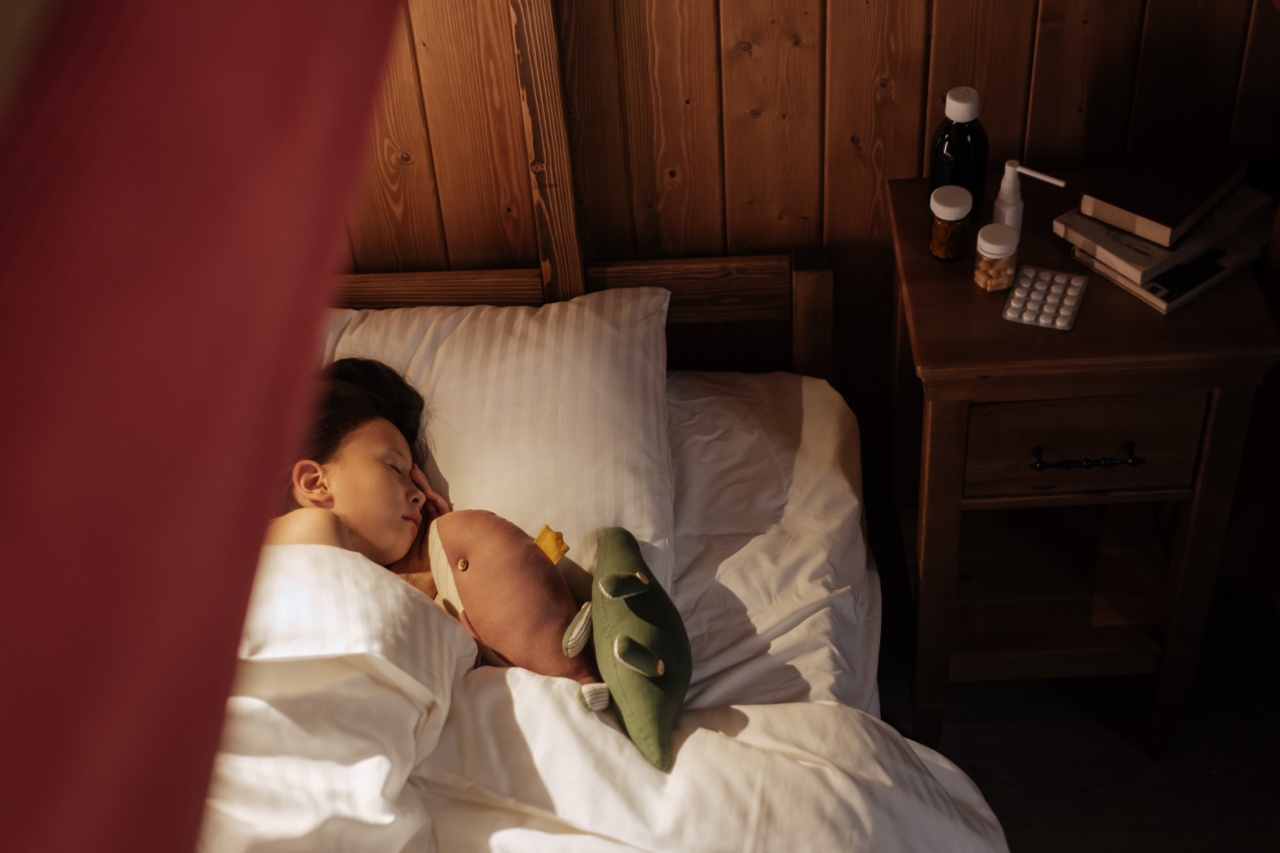Sleep has always been an essential aspect of a healthy lifestyle. It rejuvenates the body, restores the mind, and is vital for overall well-being.
However, millions of individuals worldwide struggle with sleep difficulties, often resorting to sleeping pills as a solution. While these medications can provide temporary relief, they come with their own set of risks and can lead to dependence over time.
In this article, we will explore the dangers of sleeping pill dependence and offer insights into alternative approaches to improve sleep quality.
1. The Mechanism of Sleeping Pills
Sleeping pills, or sedative hypnotics, work by targeting the brain’s natural sleep-wake cycle.
These medications typically enhance the effects of gamma-aminobutyric acid (GABA), a neurotransmitter that slows down brain activity, promoting relaxation and sleepiness. By increasing GABA levels, sleeping pills can help individuals fall asleep faster and maintain sleep throughout the night.
2. Short-Term Benefits of Sleeping Pills
Sleeping pills can be highly effective in the short term, particularly for individuals experiencing transient sleep disturbances caused by jet lag, temporary stress, or other short-lived factors.
They can help regulate sleep patterns and alleviate acute sleep disorders, providing immediate relief in certain situations.
3. The Downside of Long-Term Use
While sleeping pills may offer temporary benefits, prolonged use can lead to dependence and a range of adverse effects. Studies have shown that long-term use of sleeping pills can impair memory, cognition, and overall cognitive performance.
These medications can weaken the neural connections required for learning and memory consolidation, leading to daytime drowsiness and cognitive dysfunction.
4. Physical and Psychological Dependence
Sleeping pill dependency can manifest in both physical and psychological forms. Physically, the body can develop tolerance over time, requiring higher doses for the same effect.
Abrupt discontinuation of sleeping pills can result in withdrawal symptoms like rebound insomnia, anxiety, irritability, and even seizures in extreme cases.
Psychologically, individuals may become reliant on sleeping pills to initiate sleep, understandably fearing the return of their initial sleep difficulties without medication.
This fear can create a cycle of dependency, where individuals believe they cannot fall asleep naturally without medication.
5. Risk of Addiction
While not all sleeping pills are addictive, some belong to the class of drugs known as benzodiazepines or Z-drugs, which possess addictive properties.
These medications can trigger a sense of euphoria and relaxation, potentially leading to their misuse or abuse. Individuals with a history of substance abuse or addiction are particularly vulnerable to developing an addiction to sleeping pills.
6. Overlapping Conditions and Medication Interactions
Sleep disorders often coexist with other medical or psychiatric conditions. The use of sleeping pills in such cases can complicate treatment and potentially interact with other medications.
It is essential to consult with a healthcare professional to evaluate potential risks and drug interactions before starting any sleep medication.
7. Alternatives to Sleeping Pills
Fortunately, other approaches can be adopted to improve sleep quality and address sleep difficulties without the risks associated with sleeping pill dependence. Some effective alternatives include:.
7.1 Cognitive-Behavioral Therapy for Insomnia (CBT-I).
CBT-I is a non-medication-based therapy proven to be highly effective in treating insomnia.
It focuses on identifying and modifying negative thoughts and behaviors that contribute to sleep difficulties, ultimately promoting healthy sleep patterns and improved sleep quality.
7.2 Sleep Hygiene Practices.
Implementing healthy sleep habits can significantly improve sleep quality.
Practices include maintaining a consistent sleep schedule, creating a sleep-friendly environment, avoiding stimulants (such as caffeine and nicotine) before bedtime, and incorporating relaxation techniques into the evening routine.
7.3 Stimulus Control.
Stimulus control techniques involve establishing a strong association between the bedroom and sleep.
This includes limiting awake time in bed, using the bed only for sleep and intimacy, and avoiding engaging in stimulating activities in bed, such as watching TV or using electronic devices.
7.4 Natural Remedies.
Some individuals find relief through natural remedies like herbal supplements (valerian root, chamomile), melatonin supplements, aromatherapy, or relaxation techniques such as meditation or yoga.
However, it is important to note that natural remedies may have varying levels of effectiveness, and it’s advisable to consult with a healthcare professional before using them.
8. Seeking Professional Help
If sleep difficulties persist despite trying alternative approaches or if medication becomes necessary, it is crucial to seek guidance from a healthcare professional specializing in sleep medicine.
They can provide appropriate diagnostic evaluations and recommend the most suitable treatment approach, tailored to the individual’s specific needs.
9. The Importance of Sleep Hygiene
Regardless of the chosen approach, prioritizing good sleep hygiene practices is essential for cultivating healthy sleep habits.
Consistency, comfortable sleeping environments, and a relaxing bedtime routine are crucial for achieving restorative sleep and maintaining optimal health and well-being.
10. Conclusion
While sleeping pills may offer short-term relief, they come with several risks and hazards associated with long-term use and dependence. Understanding these risks is crucial in order to make informed decisions about sleep medications.
Adopting alternative strategies, such as cognitive-behavioral therapy and sleep hygiene practices, can promote healthier sleep patterns and foster long-term improvements in sleep quality. It is important to prioritize sleep and seek professional help when needed, ensuring that sleep difficulties are addressed in a safe and effective manner.































